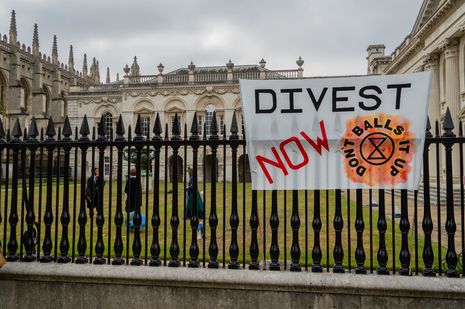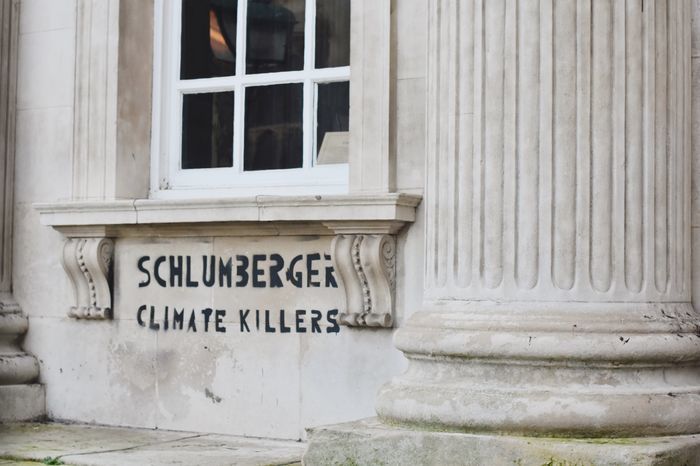University Council delays vote on fossil fuel funding
The Council stated that they ‘share the desire to address the climate emergency as a matter of urgency’

The University Council has passed a motion to delay a vote on a proposal to stop accepting funding from coal, oil and gas companies.
In July, the Grace was proposed by 84 members of the Regent House. The Grace system allows academics to vote on matters involving the governance of the University if it receives the support of 50 members of the Regent House, if it is not blocked by the University Council.
The Council have declared that they “share the desire implicit in the Grace to address the climate emergency as a matter of urgency” and have argued that the University has “demonstrated its commitment to global decarbonisation through the establishment of the Cambridge Zero initiative”.
The Council stated that they were aware that there would be support within the University for the aims of the Grace, but argued that some academics may be concerned about the potential for fossil fuel funding cuts to impact research “that could enable the transition to a carbon-neutral future”.
The vote has been delayed by the Council as they seek to “explore, and give proper consideration to, the full implications of these changes”.
Instead, the Council has commissioned a study to analyse the impact of the proposals, focusing on the energy transition, academic freedom and the ability of the University to fill gaps in funding.
The Council has asked to receive the strategy as early as possible in Lent Term 2023, and want to make sure that members of the University “are given a full opportunity to contribute to the discussion on the way forward”.
The Council has highlighted that they do not want to “raise expectations about the ability of the Grace’s proposals to be implemented as presented”.
The original Grace said that the University should not accept research funding from a company if it is constructing new fossil fuel infrastructure, exploring new fossil fuel reserves or are members of trade associations involved in “political lobbying against science-based climate legislation.”
Cambridge would have become the first leading university to vote on fossil fuel funding had the vote taken place.
The main points of the study commissioned by the Council are to investigate if the Grace can be implemented in a way that supports academic freedom, is “consistent with the University’s charitable purposes in relation to research and teaching”, and makes sure that the University remains financially sustainable.
The proposal was not backed by the Student Union undergraduate president, Zaynab Ahmed, and Professor Jason Scott-Warren, but received the support of the majority of the council.
Cambridge collaborates with companies including BP, Shell and Schlumberger through institutes, professorships and other research funding.
Sam Carling, a student representative on the Council who backed the Council’s delay, said: “Nobody is denying the severity of the climate crisis we’re facing. The issue we have is that funding from companies which this Grace would see cut off is being used to drive research critical to fighting the climate crisis, and that isn’t easily replaceable — science is seriously underfunded.”

Cambridge dons to vote on cutting fossil fuel ties
He continued: “The Council was right to commission a report into exactly how this Grace would impact on the research we do — people need to be fully informed when trying to make decisions about whether the relative impact of greenwashing that we allow by taking this funding outweighs the material benefits brought by the research it enables, and it would have been utterly reckless to have put the Grace before Regent House without that information.”
Sam Gee, organiser with Cambridge Climate Justice and Fossil Free Research, said that the group are “deeply disappointed that Cambridge University Council has chosen a delay tactic, instead of trusting its own academics”.
He continued: “As momentum builds for fossil-free research, the University of Cambridge risks laggard status if it does not act swiftly.”
 News / Report suggests Cambridge the hardest place to get a first in the country23 January 2026
News / Report suggests Cambridge the hardest place to get a first in the country23 January 2026 News / Reform candidate retracts claim of being Cambridge alum 26 January 2026
News / Reform candidate retracts claim of being Cambridge alum 26 January 2026 News / Cambridge ranks in the top ten for every subject area in 202623 January 2026
News / Cambridge ranks in the top ten for every subject area in 202623 January 2026 Comment / Cambridge has already become complacent on class23 January 2026
Comment / Cambridge has already become complacent on class23 January 2026 News / Palestine activists project slogans onto John’s24 January 2026
News / Palestine activists project slogans onto John’s24 January 2026








